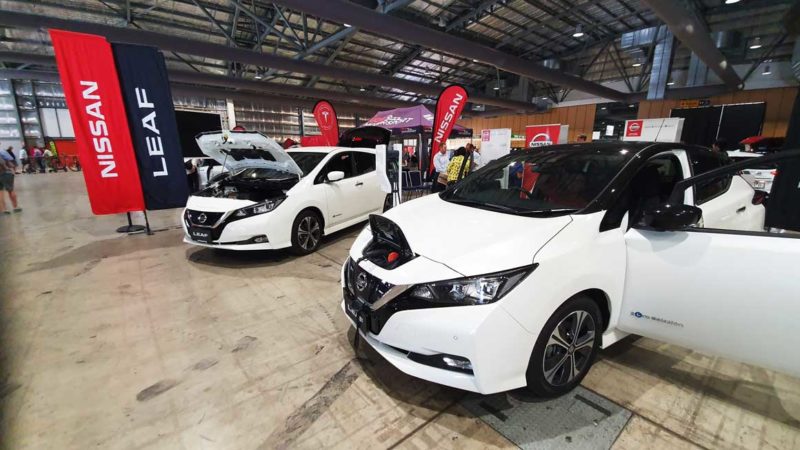The 50-year old Australian Electric Vehicle Association (AEVA) has weighed in on the debate of whether or not electric vehicles – of which there are less than 20,000 in Australia – should be subjected to a road users tax.
As The Driven reported last month, a NSW state government financial review panel recommended a road user charging scheme for electric vehicles, saying that $20 billion of annual fuel excise revenues are under threat from the switch to zero and low emission vehicles.
It’s a controversial issue.
At a time when many other countries are offering substantive financial rebates and other incentives to encourage more people to buy zero and low emissions vehicles, the proposal to tax EVs is at odds with the rest of the developed world.
Those who support electric vehicles paying a road users tax claim that EVs “aren’t paying their fair share”, because they are not handing out 42 cents per litre of petrol or diesel in fuel excise.
On the other hand, proponents of electric vehicles say they already pay a premium to be able to drive without adding more carbon to the atmosphere, because the higher price of EVs attracts more GST, stamp duty, the luxury car tax, and other taxes.
AEVA’s response is that the road user tax should not be applied to the EV industry now. But it says if it must then it should only happen if it is applied to all vehicles, including petrol and diesel cars and hybrids.
In its response to the Federal Financial Relations Review on Friday the association says a road users tax should be applied according to weight, to help discourage heavy pickup and SUV sales, and ensure they pay their share of road repair costs.
AEVA has made a submission to the Federal Financial Relations Review and road user charges. In short – 1. Don't. 2. If you must, apply it to all vehicles including ICE. 3. Leave fuel excise in place. 4. *Commit* to spending it on transport infrastructure.https://t.co/3Aw2sG3OKk
— AEVA (@AEVA_National) July 31, 2020
“We don’t have a problem with having to pay to use the road,” Chris Jones, national secretary of AEVA, tells The Driven.
“But if you’re going to do it, do it properly, and make sure everyone is genuinely paying their fair share.”
AEVA’s submissions points out that claims drivers of EVs aren’t contributing to roads is in fact wrong, because fuel excise hasn’t been tied directly to road maintenance for 70 years.
It also notes that a decline in fuel excise revenue is due to increasing efficiency of internal combustion engine (ICE) vehicles.
Importantly, AEVA says that electric vehicles don’t contribute to the high health and social costs associated with ICE vehicles, from highly damaging particulate pollution that is associated with respiratory and heart disease and deaths, to carbon emissions that increase the impacts of climate change.
“These costs are borne by the entire population, including those who don’t drive,” AEVA’s submission notes.
AEVA’s submission echoes the message of the Electric Vehicle Council – that like tobacco and alcohol, those who don’t cause harm through the use of petrol and diesel should not be otherwise penalised.
“Non-smokers aren’t singled out for shirking their civic responsibilities just because they don’t pay tobacco excise, and nor should EV drivers be taken to task for not consuming petrol,” AEVA notes.
However, if a road user tax is going to be implemented, it should be applied across the board, says AEVA.
While fuel excise from ICE vehicle usage would still go into consolidated revenue, a “user-pays” scheme applied to both ICE and EVs should be put directly towards road infrastructure, to deal with issues of congestion and air quality.
This is why AEVA suggests any road user tax should be charged by weight. The association argues that this would mean those buying EVs aren’t paying more than ICE owners, but both markets would be encouraged to purchase vehicles that are smaller, lighter, and have less impact on pollution and carbon emissions.
“It’s a viable way to do it,” says Jones, although he says that until EVs make up more than 15-20% of the national fleet, any road tax is still a penalty to the EV industry in Australia.
“We all use the same roads, so there’s the incentive to buy smaller and lighter cars. Maybe we need to reconsider our lifestyles,” he says.

Bridie Schmidt is associate editor for The Driven, sister site of Renew Economy. She has been writing about electric vehicles since 2018, and has a keen interest in the role that zero-emissions transport has to play in sustainability. She has participated in podcasts such as Download This Show with Marc Fennell and Shirtloads of Science with Karl Kruszelnicki and is co-organiser of the Northern Rivers Electric Vehicle Forum. Bridie also owns a Tesla Model Y and has it available for hire on evee.com.au.


